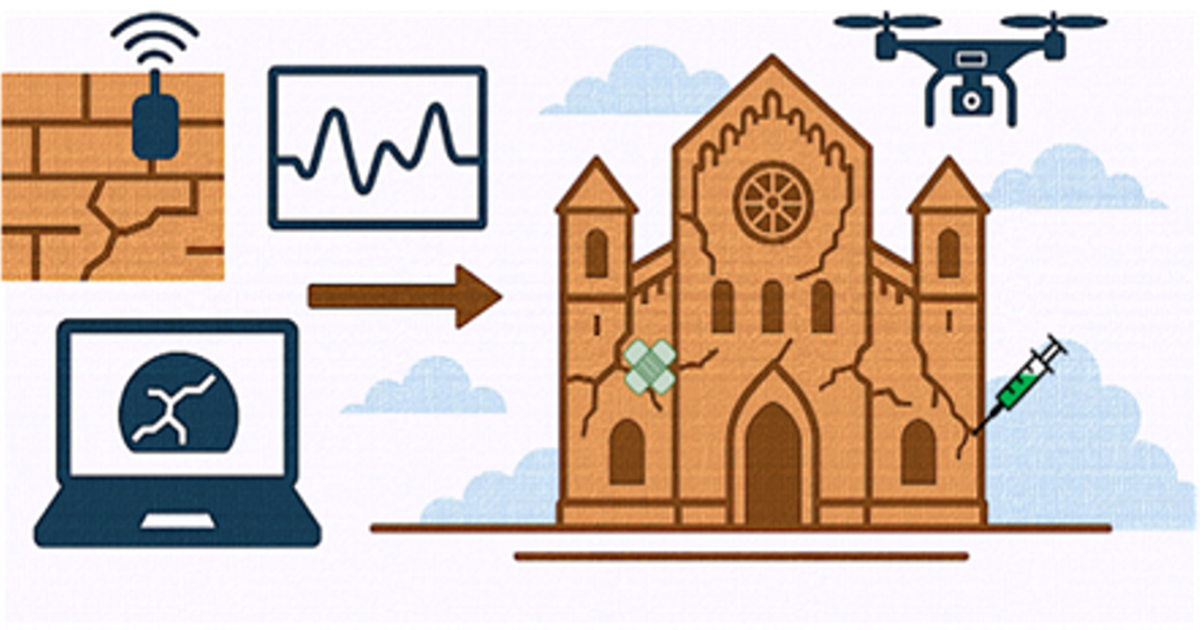Advanced Structural Health Monitoring and Enhancement for Heritage Longevity
A special issue of Buildings (ISSN 2075-5309). This special issue belongs to the section "Building Structures".
Deadline for manuscript submissions: 31 August 2026 | Viewed by 166

Special Issue Editors
Interests: resilience of cultural heritage; masonry buildings; timber structures; glass structures; numerical modelling of structures; earthquake response of structures
Interests: cultural heritage resilience; timber structures; glass structures; lightweight structures; structural health monitoring; earthquake resistance of buildings
Special Issues, Collections and Topics in MDPI journals
Interests: building materials science and engineering; non-destructive testing at the scale of buildings and infrastructure; the geophysical prospection of buildings and structures to assess their state of preservation; modelling environmental impact on buildings and infrastructure
Special Issues, Collections and Topics in MDPI journals
Special Issue Information
Dear Colleagues,
This Special Issue of Buildings addresses the integration of advanced structural health monitoring (SHM) technologies and sustainable strengthening interventions to safeguard built cultural heritage against ageing, environmental degradation, and seismic or climatic risks. Recognizing the intrinsic value and vulnerability of heritage structures, this issue focuses on cutting-edge SHM solutions—such as sensor networks, digital twins, and AI-based damage detection—as well as compatible and reversible retrofitting strategies. We invite the submission of interdisciplinary research contributions that span material science, data analytics, engineering diagnostics, and architectural conservation. Emphasis will be placed on case studies and frameworks that showcase how real-time data collection and predictive maintenance can be leveraged to extend the service life of monuments, historic urban fabrics, and archeological remains. This Special Issue also encourages reflections on regulatory frameworks, risk-based decision-making, and the socio-cultural implications of digital monitoring in heritage practice.
Prof. Dr. Roko Žarnić
Prof. Dr. Vlatka Rajčič
Dr. Kyriakos Lampropoulos
Guest Editors
Manuscript Submission Information
Manuscripts should be submitted online at www.mdpi.com by registering and logging in to this website. Once you are registered, click here to go to the submission form. Manuscripts can be submitted until the deadline. All submissions that pass pre-check are peer-reviewed. Accepted papers will be published continuously in the journal (as soon as accepted) and will be listed together on the special issue website. Research articles, review articles as well as short communications are invited. For planned papers, a title and short abstract (about 100 words) can be sent to the Editorial Office for announcement on this website.
Submitted manuscripts should not have been published previously, nor be under consideration for publication elsewhere (except conference proceedings papers). All manuscripts are thoroughly refereed through a single-blind peer-review process. A guide for authors and other relevant information for submission of manuscripts is available on the Instructions for Authors page. Buildings is an international peer-reviewed open access semimonthly journal published by MDPI.
Please visit the Instructions for Authors page before submitting a manuscript. The Article Processing Charge (APC) for publication in this open access journal is 2600 CHF (Swiss Francs). Submitted papers should be well formatted and use good English. Authors may use MDPI's English editing service prior to publication or during author revisions.
Keywords
- structural health monitoring (SHM)
- cultural heritage preservation
- non-invasive techniques
- digital twin technology
- damage detection
- data-driven maintenance
- seismic and environmental resilience
- monitoring systems for monuments
- sustainable conservation
- AI in heritage engineering
Benefits of Publishing in a Special Issue
- Ease of navigation: Grouping papers by topic helps scholars navigate broad scope journals more efficiently.
- Greater discoverability: Special Issues support the reach and impact of scientific research. Articles in Special Issues are more discoverable and cited more frequently.
- Expansion of research network: Special Issues facilitate connections among authors, fostering scientific collaborations.
- External promotion: Articles in Special Issues are often promoted through the journal's social media, increasing their visibility.
- Reprint: MDPI Books provides the opportunity to republish successful Special Issues in book format, both online and in print.
Further information on MDPI's Special Issue policies can be found here.







